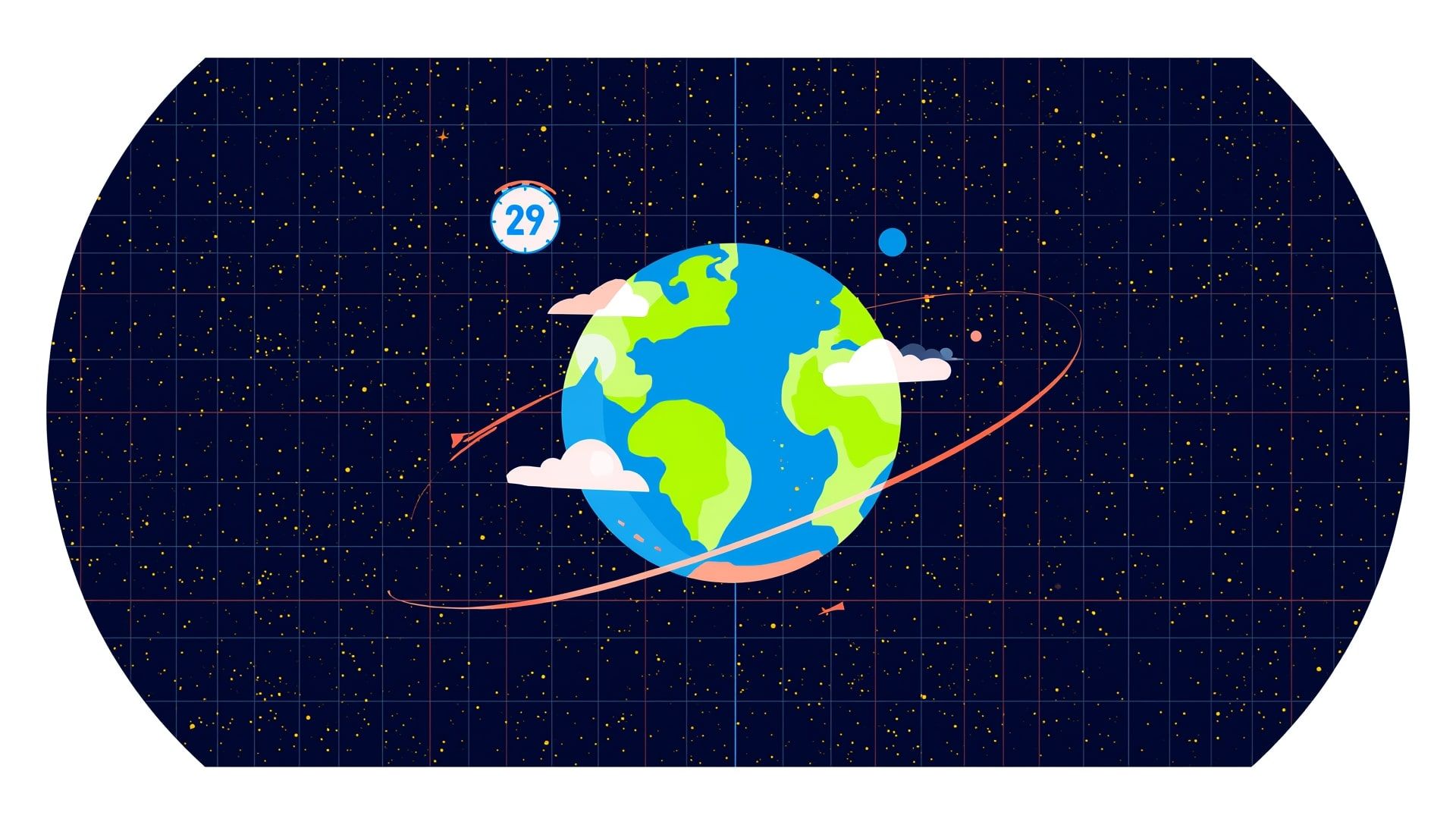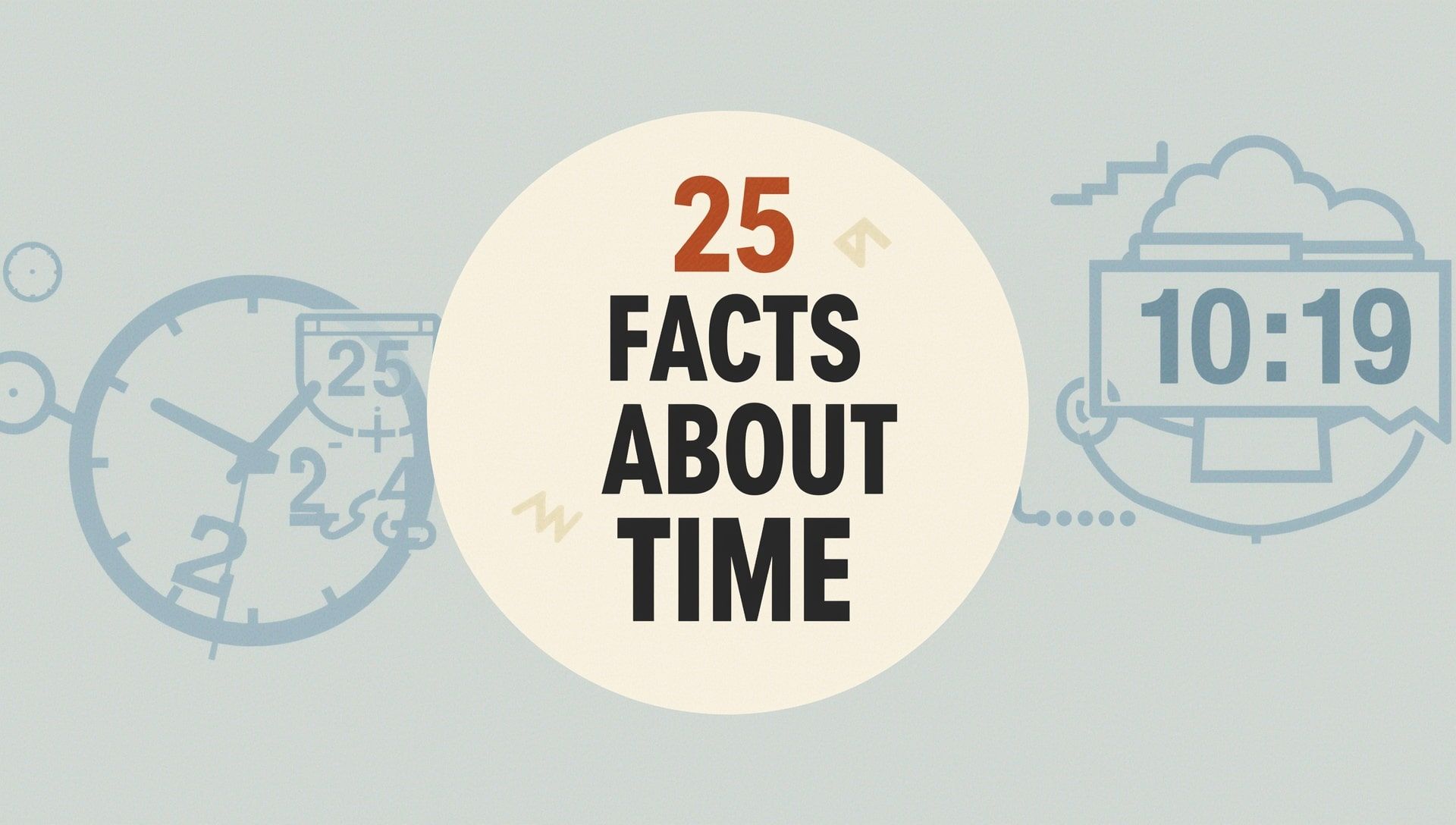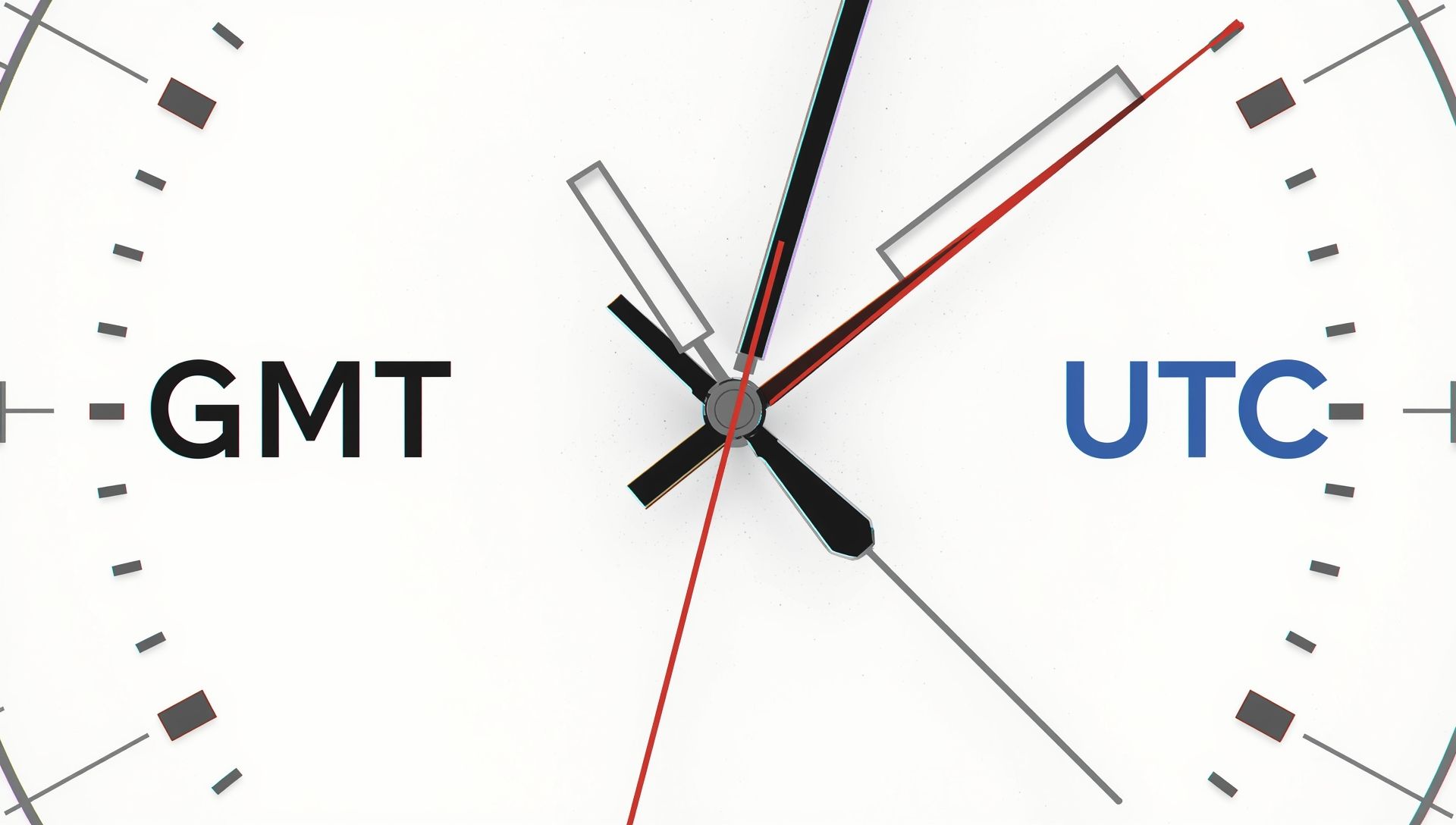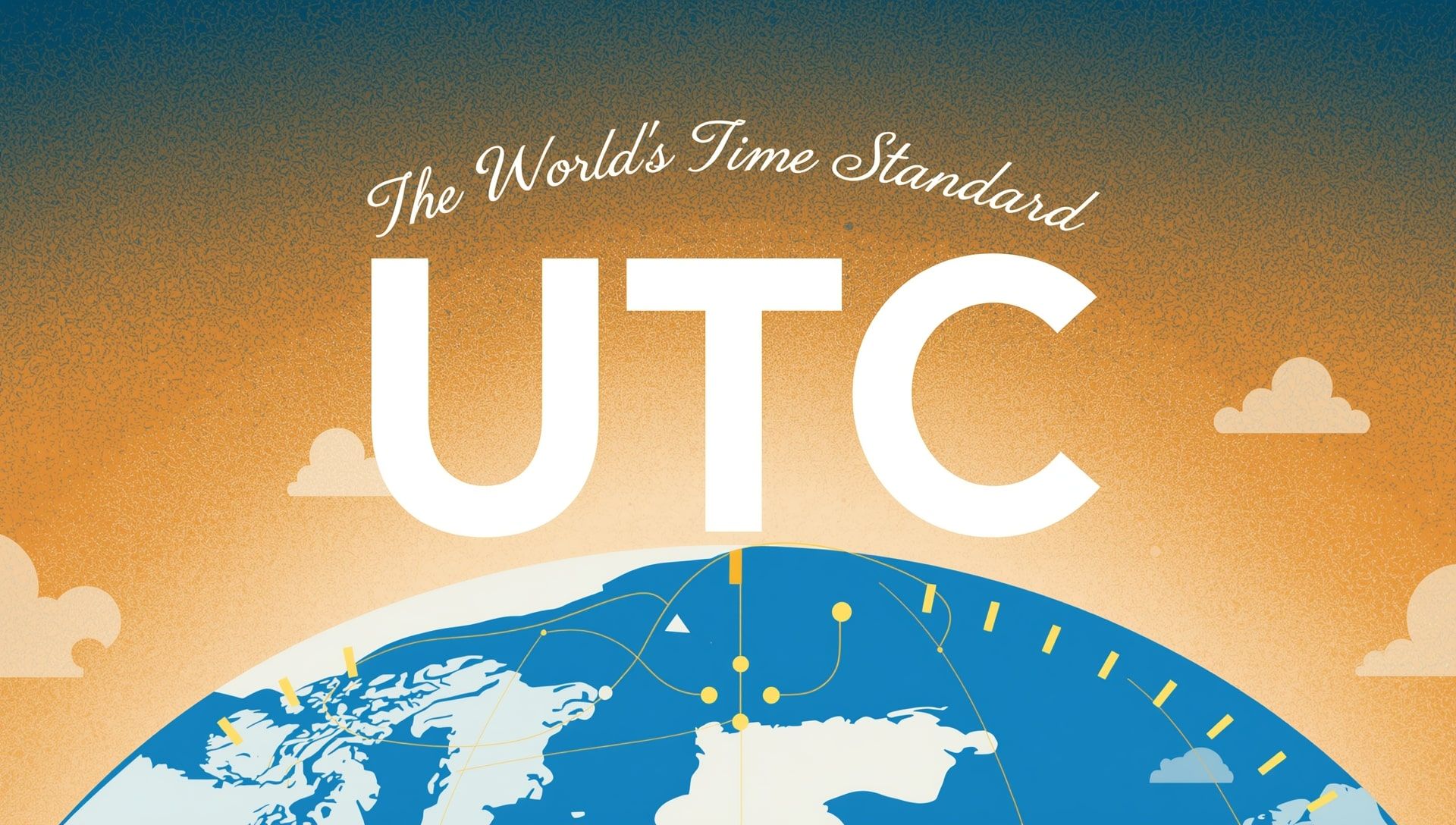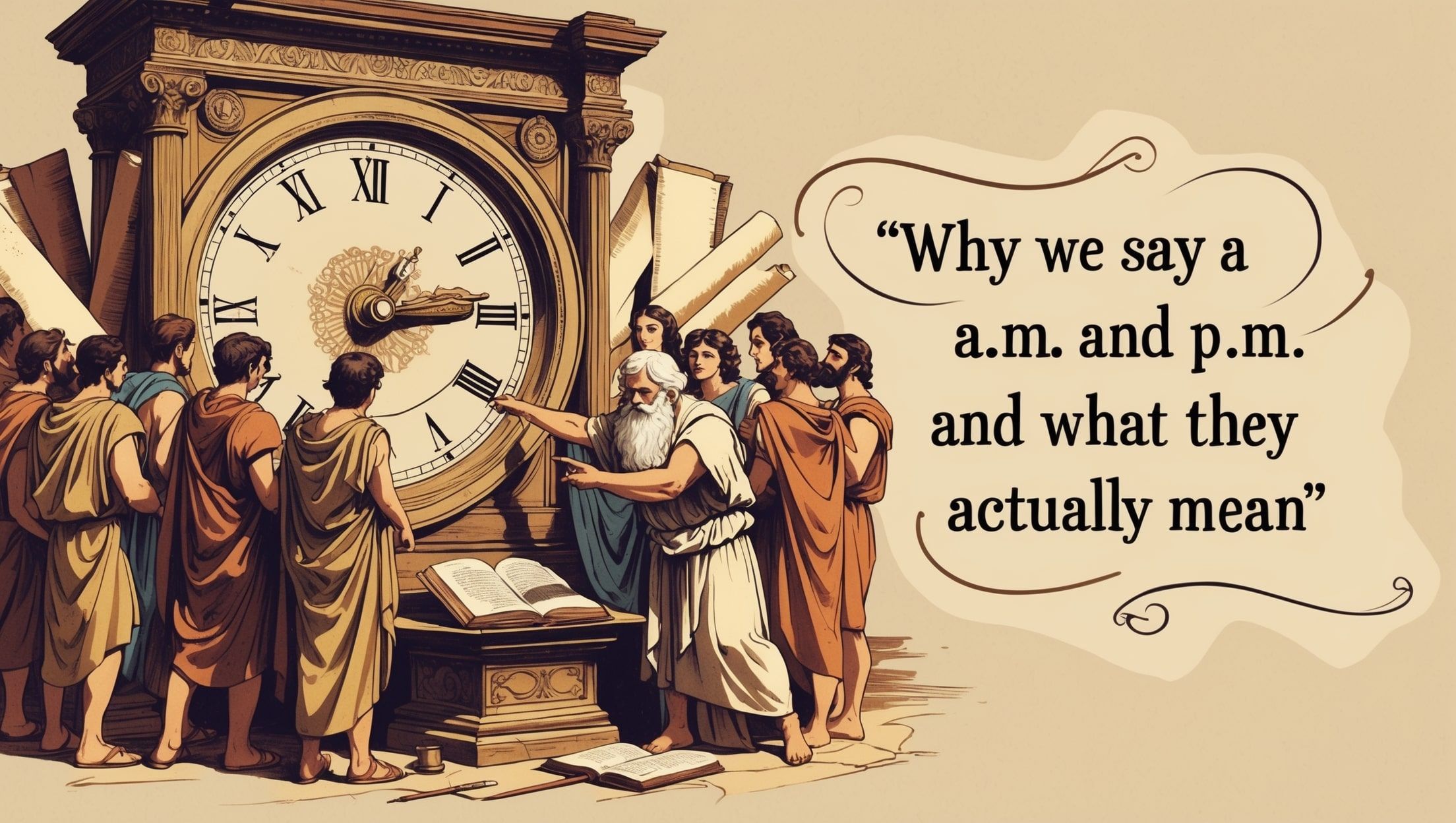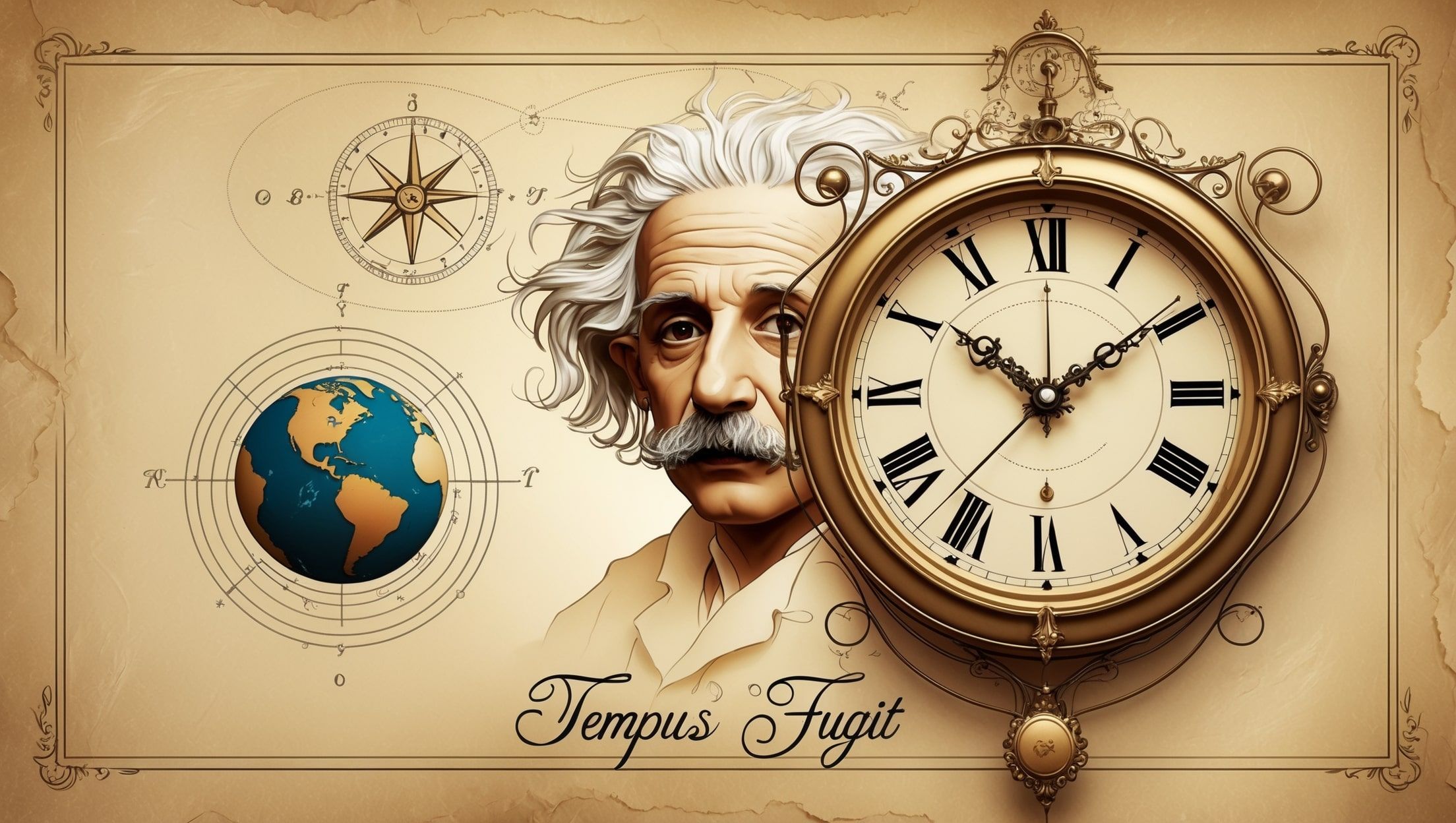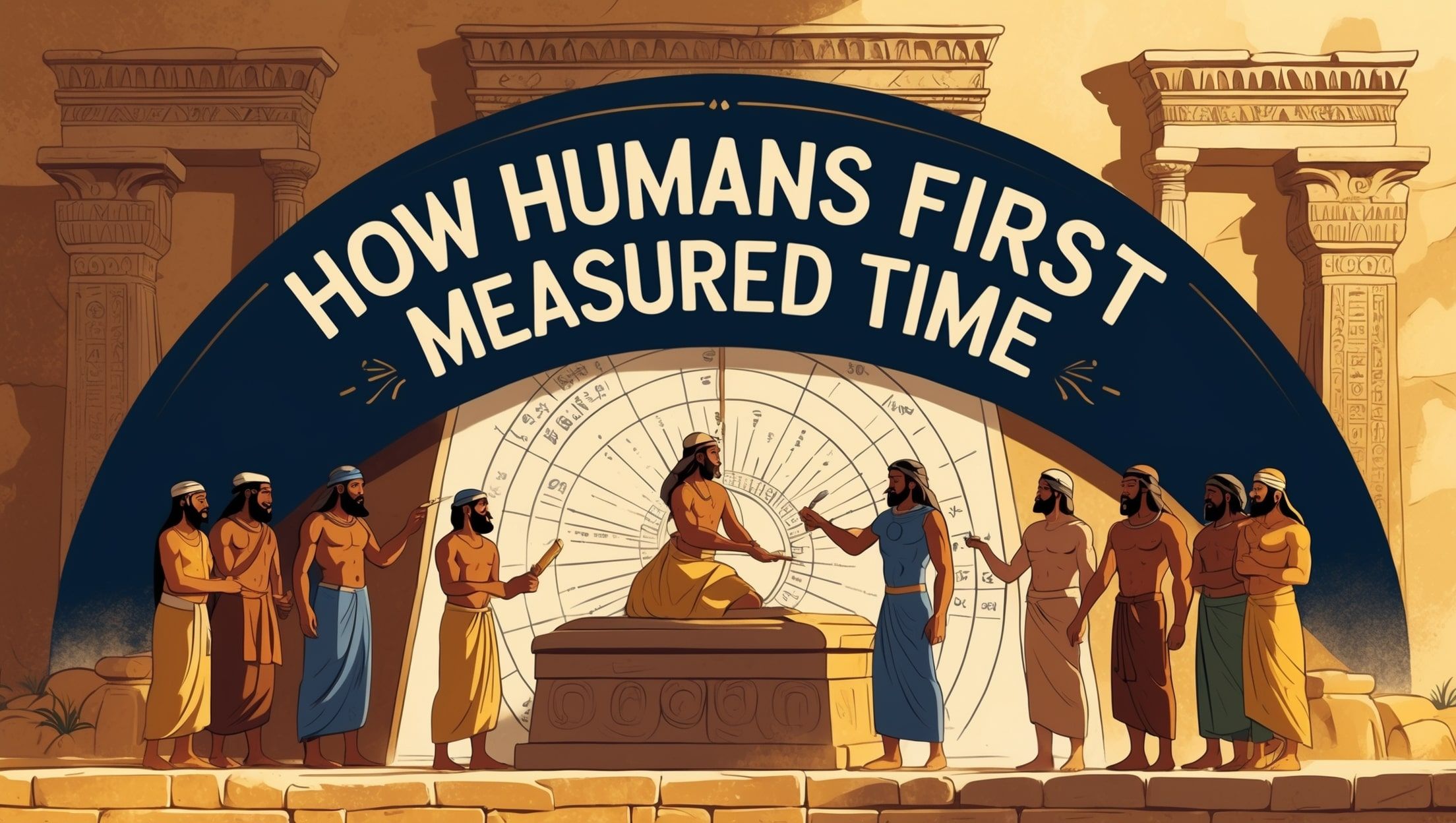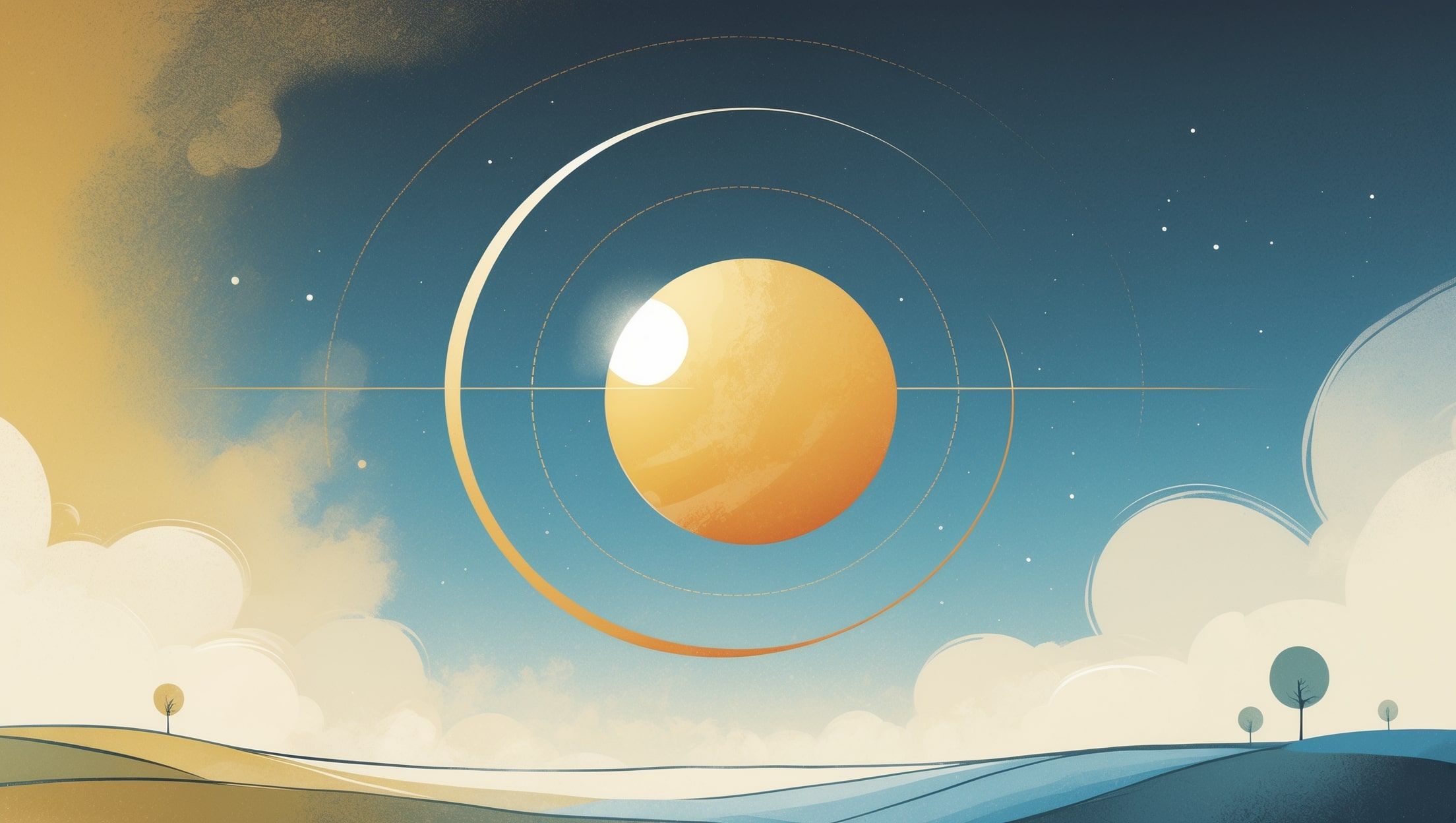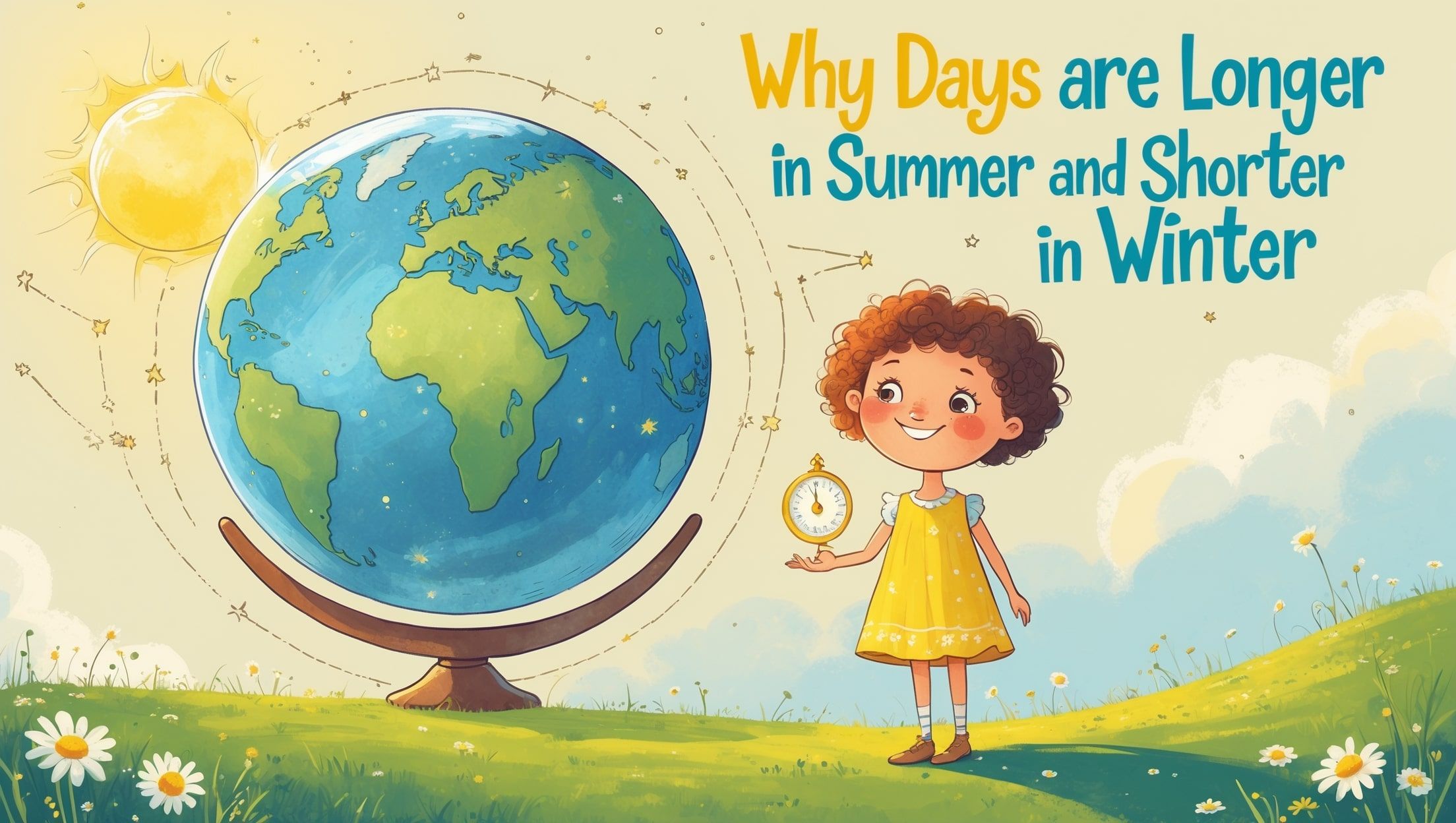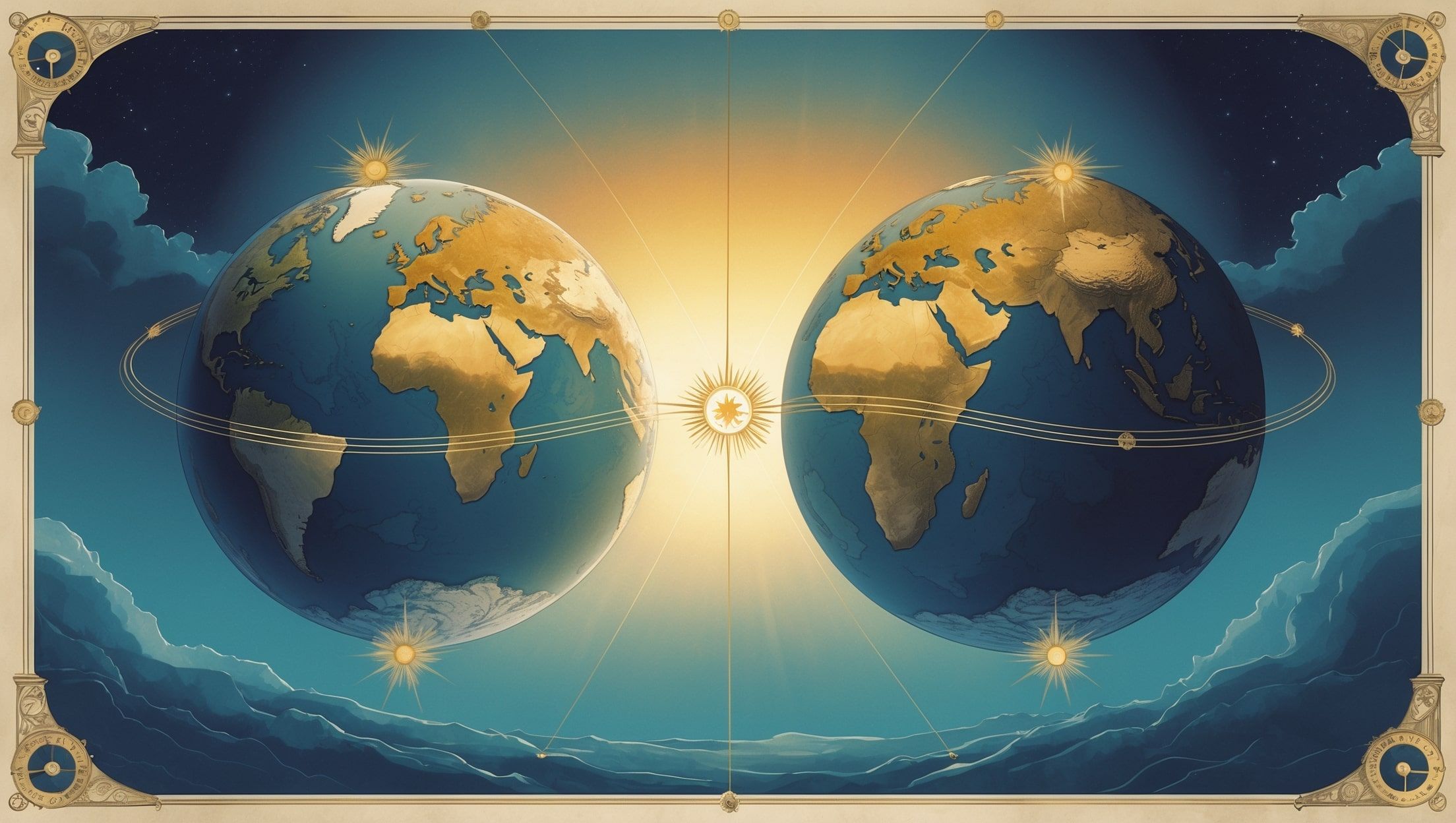Everything about Time
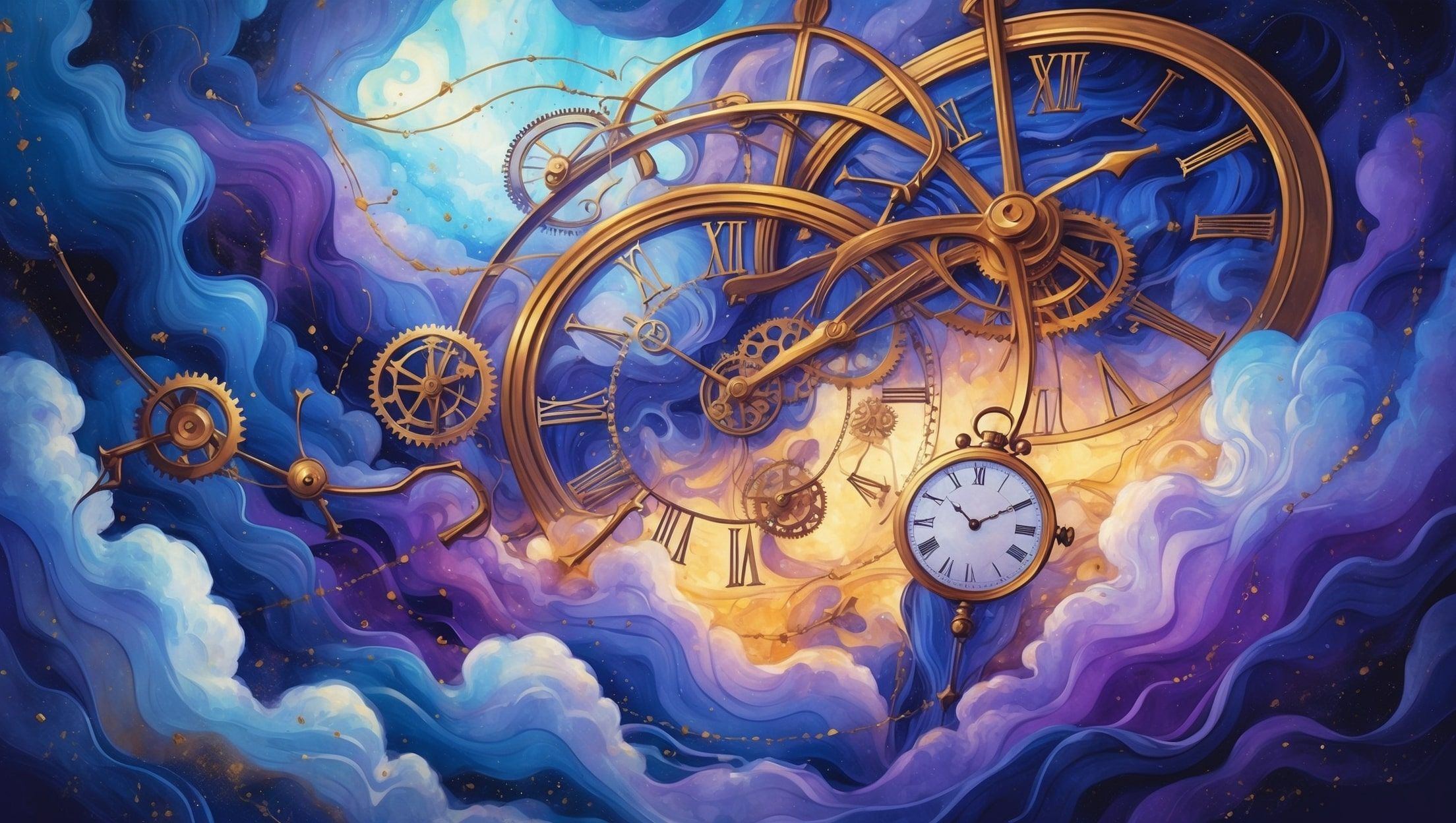
Time runs our lives, quietly but relentlessly. It decides when we wake, when we work, and how we grow old. But for something so central, it’s surprisingly slippery. Is it a force of nature? A human invention? And why do we divide it into hours, minutes, and seconds the way we do? This is your complete guide to time: where it comes from, how we measure it, and why it sometimes feels like it moves too fast or too slow.
What Time Actually Is
It feels constant, but time is anything but fixed. Einstein proved that it’s relative - it flows differently depending on speed and gravity. Still, we live by schedules, calendars, and countdowns. This tension between how time behaves in physics and how we use it in life makes the concept more complex than it appears. If you want to understand what time really means, you have to look at both science and philosophy.
Where Timekeeping Began
Before clocks, time was measured by nature. Ancient people tracked days by shadows, months by moon phases, and seasons by stars. Over centuries, these patterns became structured systems. The earliest tools for measuring time from water clocks to sundials, were all based on watching the sky.
The 24-hour day also came from the ancient world. Egyptians split daylight into 12 parts, and gave the night 12 as well. Combined, that became the format we still use. For the details behind that decision, see why we have 24 hours in a day.
The 60-Second Mystery
If you’ve ever wondered why we have 60 seconds in a minute and 60 minutes in an hour, thank the Babylonians. Their base-60 system made it easier to divide things evenly, whether angles, circles, or time. This math is surprisingly durable and still works today. Find out more in why time is divided into 60s.
From Sundials to Atomic Clocks
We’ve come a long way from shadows on the ground. Today, atomic clocks define the second based on the vibration of cesium atoms - over 9 billion ticks per second. These clocks are so precise, they wouldn’t drift more than a second over millions of years. The story of how we got to this level of accuracy is a stunning mix of physics, engineering, and global cooperation.
Star Time vs. Sun Time
You may think a day is always 24 hours. But there’s more than one kind of day. Solar time tracks the sun. Sidereal time, used by astronomers, follows distant stars. A sidereal day is slightly shorter, just under 24 hours. This small difference matters more than you'd think. Learn about the difference between solar and sidereal time and how it affects everything from star charts to leap seconds.
Those Tiny Letters on Your Clock
The little “a.m.” and “p.m.” we casually say every day actually come from Latin: “ante meridiem” means before noon, “post meridiem” means after. These labels reflect how ancient timekeeping revolved around the sun’s highest point in the sky. Their story is explained in how a.m. and p.m. came to be.
Time Doesn’t Feel Fair
Time can drag or fly, depending on what you’re doing. That’s not just a feeling, it’s brain science. When we’re focused or excited, our perception of time contracts. When we’re bored or stressed, it expands. Our memory also plays tricks: new experiences seem longer in hindsight. The psychology behind why time feels fast or slow shows how emotional states shape our inner clock.
Spiritual Timekeeping
Many religions have their own time systems. In Islam, prayer times shift with the sun. Judaism begins the Sabbath at sundown Friday. Christianity structures its year around key seasonal dates. These rhythms connect people to tradition and purpose. See how faith-based timekeeping organizes sacred life.
The Challenge of Keeping Time Worldwide
Standard time zones are a modern invention, created to help with train schedules. But global timekeeping is still messy. Some places use offsets like UTC+5:30. Others don’t observe daylight saving time. Coordinating across all of this, especially for airlines, stock markets, and digital platforms, is harder than most realize. Here’s why managing time across borders is so complicated.
How the Sky Shapes Our Calendar
Our calendar isn’t random. It’s built on Earth's orbit. Solstices mark the longest and shortest days. Equinoxes divide light and dark evenly. These moments guided ancient festivals and modern holidays alike. If you want to know how the movement of the Earth gave us our yearly schedule, see how solstices and equinoxes shape time.
Everyday Ways Time Shapes Your Life
- You wake by alarm, not sunrise
- Work and school follow scheduled hours
- Vacations are measured in days, not restfulness
- Holidays fall on the same calendar dates each year
- You count your age in years, even though you feel older or younger
- Time zones determine when you call friends abroad
- Appointments and reminders rule your world clock and phone screen
- Your sleep is often shaped by time, not tiredness
What Time Leaves Behind
Time is something we try to master, but never really do. We build clocks to track it and calendars to organize it. We set goals, count milestones, and wish we had more of it. Yet time slips past, shaped as much by how we feel as how we measure it. It’s both universal and personal, ticking away in atoms and memories alike.
Understanding time means more than knowing how a clock works. It means seeing the history, science, emotion, and ritual inside each moment, and deciding what we’ll do with the one we’re in right now.
Time Now in Major Cities
- Shanghai, China 🇨🇳 Sat 11:43
- Beijing, China 🇨🇳 Sat 11:43
- Dhaka, Bangladesh 🇧🇩 Sat 09:43
- Cairo, Egypt 🇪🇬 Sat 05:43
- Shenzhen, China 🇨🇳 Sat 11:43
- Guangzhou, China 🇨🇳 Sat 11:43
- Lagos, Nigeria 🇳🇬 Sat 04:43
- Kinshasa, Democratic Republic of Congo 🇨🇩 Sat 04:43
- Istanbul, Türkiye 🇹🇷 Sat 06:43
- Tokyo, Japan 🇯🇵 Sat 12:43
- Chengdu, China 🇨🇳 Sat 11:43
- Mumbai, India 🇮🇳 Sat 09:13
- Moscow, Russia 🇷🇺 Sat 06:43
- São Paulo, Brazil 🇧🇷 Sat 00:43
- Karachi, Pakistan 🇵🇰 Sat 08:43
- Delhi, India 🇮🇳 Sat 09:13
- Jakarta, Indonesia 🇮🇩 Sat 10:43
- Bangkok, Thailand 🇹🇭 Sat 10:43
- Lima, Peru 🇵🇪 Fri 22:43
- Seoul, South Korea 🇰🇷 Sat 12:43
- Mexico City, Mexico 🇲🇽 Fri 21:43
- Tehran, Iran 🇮🇷 Sat 07:13
- Ho Chi Minh City, Vietnam 🇻🇳 Sat 10:43
- London, United Kingdom 🇬🇧 Sat 03:43
- New York City, United States 🇺🇸 Fri 22:43
- Bengaluru, India 🇮🇳 Sat 09:13
- Luanda, Angola 🇦🇴 Sat 04:43
- Hanoi, Vietnam 🇻🇳 Sat 10:43
- Bogota, Colombia 🇨🇴 Fri 22:43
- Riyadh, Saudi Arabia 🇸🇦 Sat 06:43
- Hong Kong, Hong Kong 🇭🇰 Sat 11:43
- Hong Kong, Hong Kong 🇭🇰 Sat 11:43
- Baghdad, Iraq 🇮🇶 Sat 06:43
- Rio de Janeiro, Brazil 🇧🇷 Sat 00:43
- Ahmedabad, India 🇮🇳 Sat 09:13
- Abidjan, Côte d'Ivoire 🇨🇮 Sat 03:43
- Lahore, Pakistan 🇵🇰 Sat 08:43
- Santiago, Chile 🇨🇱 Sat 00:43
- Singapore, Singapore 🇸🇬 Sat 11:43
- Singapore, Singapore 🇸🇬 Sat 11:43
- Johannesburg, South Africa 🇿🇦 Sat 05:43
- Dar es Salaam, Tanzania 🇹🇿 Sat 06:43
- Saint Petersburg, Russia 🇷🇺 Sat 06:43
- Alexandria, Egypt 🇪🇬 Sat 05:43
- Sydney, Australia 🇦🇺 Sat 14:43
- Khartoum, Sudan 🇸🇩 Sat 05:43
- Ankara, Türkiye 🇹🇷 Sat 06:43
- Melbourne, Australia 🇦🇺 Sat 14:43
- Kano, Nigeria 🇳🇬 Sat 04:43
- Addis Ababa, Ethiopia 🇪🇹 Sat 06:43
- Cape Town, South Africa 🇿🇦 Sat 05:43
- Jeddah, Saudi Arabia 🇸🇦 Sat 06:43
- Chennai, India 🇮🇳 Sat 09:13
- Yangon, Myanmar 🇲🇲 Sat 10:13
- Nairobi, Kenya 🇰🇪 Sat 06:43
- Giza, Egypt 🇪🇬 Sat 05:43
- Kabul, Afghanistan 🇦🇫 Sat 08:13
- Amman, Jordan 🇯🇴 Sat 06:43
- Chattogram, Bangladesh 🇧🇩 Sat 09:43
- Los Angeles, United States 🇺🇸 Fri 19:43
- Yaounde, Cameroon 🇨🇲 Sat 04:43
- Yokohama, Japan 🇯🇵 Sat 12:43
- Busan, South Korea 🇰🇷 Sat 12:43
- Casablanca, Morocco 🇲🇦 Sat 03:43
- Ibadan, Nigeria 🇳🇬 Sat 04:43
- Berlin, Germany 🇩🇪 Sat 04:43
- Dubai, United Arab Emirates 🇦🇪 Sat 07:43
- Algiers, Algeria 🇩🇿 Sat 04:43
- Madrid, Spain 🇪🇸 Sat 04:43
- Durban, South Africa 🇿🇦 Sat 05:43
- Bursa, Türkiye 🇹🇷 Sat 06:43
- Brasilia, Brazil 🇧🇷 Sat 00:43
- Santo Domingo, Dominican Republic 🇩🇴 Fri 23:43
- Guatemala City, Guatemala 🇬🇹 Fri 21:43
- Kuwait City, Kuwait 🇰🇼 Sat 06:43
- Abuja, Nigeria 🇳🇬 Sat 04:43
- Incheon, South Korea 🇰🇷 Sat 12:43
- Kyiv, Ukraine 🇺🇦 Sat 05:43
- Caracas, Venezuela 🇻🇪 Fri 23:43
- Sana'a, Yemen 🇾🇪 Sat 06:43
- Buenos Aires, Argentina 🇦🇷 Sat 00:43
- Surabaya, Indonesia 🇮🇩 Sat 10:43
- Rome, Italy 🇮🇹 Sat 04:43
- Pyongyang, North Korea 🇰🇵 Sat 12:43
- Quezon City, Philippines 🇵🇭 Sat 11:43
- Osaka, Japan 🇯🇵 Sat 12:43
- Brooklyn, United States 🇺🇸 Fri 22:43
- Guayaquil, Ecuador 🇪🇨 Fri 22:43
- Belo Horizonte, Brazil 🇧🇷 Sat 00:43
- Salvador, Brazil 🇧🇷 Sat 00:43
- Chicago, United States 🇺🇸 Fri 21:43
- Toronto, Canada 🇨🇦 Fri 22:43
- Taipei, Taiwan 🇹🇼 Sat 11:43
- Brisbane, Australia 🇦🇺 Sat 13:43
- Daegu, South Korea 🇰🇷 Sat 12:43
- Bekasi, Indonesia 🇮🇩 Sat 10:43
- Kumasi, Ghana 🇬🇭 Sat 03:43
- Faisalabad, Pakistan 🇵🇰 Sat 08:43
- İzmir, Türkiye 🇹🇷 Sat 06:43
- Accra, Ghana 🇬🇭 Sat 03:43



